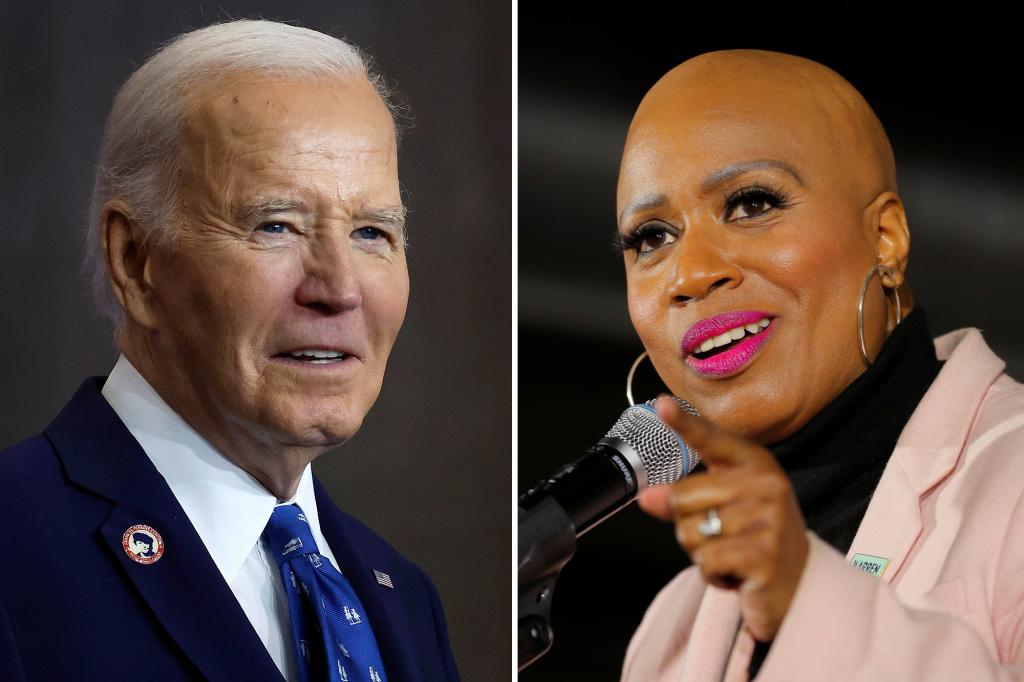The Clemency Granted by President Biden: A Moral Reckoning or a Miscarriage of Justice?
President Biden’s commutation of 37 death row sentences has ignited a fierce debate about the morality, efficacy, and racial implications of capital punishment in the United States. This executive action, lauded by abolitionists as a historic stride towards a more humane justice system, simultaneously sparked outrage among victims’ families who perceive it as a betrayal of justice and a disregard for the lives lost. Representative Ayanna Pressley, a prominent voice against the death penalty, praised the president’s decision, characterizing it as a courageous act of compassion and a necessary step toward addressing systemic inequities. This clash of perspectives highlights the complex and emotionally charged nature of the death penalty discourse, a debate that often pits the principles of redemption and human dignity against the desire for retribution and societal safety.
Central to Pressley’s argument is the assertion that capital punishment disproportionately targets Black and brown communities, perpetuating systemic racism within the criminal legal system. She frames the president’s decision as a direct response to this injustice, a move that acknowledges the flawed and discriminatory nature of death sentencing. This sentiment echoes a wider movement advocating for criminal justice reform, a movement that seeks to address racial biases and promote alternative approaches to punishment. For Pressley and other abolitionists, the commutations represent a significant victory, a testament to years of advocacy and a hopeful sign of progress towards a future without the death penalty.
However, the families of victims offer a starkly contrasting perspective. For them, the commutation of their loved ones’ killers’ sentences equates to a profound injustice, reopening wounds and compounding their grief. They see these commutations as a minimization of the heinous crimes committed and a disregard for the enduring suffering of the survivors. The case of Jorge Avila-Torrez, whose sentence was commuted despite his conviction for multiple brutal murders, including those of young children, exemplifies the anguish and frustration felt by many victims’ families. Their pleas for justice and accountability stand in stark contrast to the narrative of redemption and compassion emphasized by supporters of the commutations.
The debate surrounding the commutations also raises fundamental questions about the purpose of punishment. While abolitionists argue that the death penalty fails to deter crime and perpetuates a cycle of violence, proponents of capital punishment contend that it serves as a just retribution for heinous crimes and provides a measure of closure for victims’ families. This divergence in beliefs reflects a deeper philosophical divide about the role of the justice system, a divide that shapes opinions on everything from sentencing guidelines to rehabilitation programs. The commutations bring these core philosophical questions to the forefront, forcing society to grapple with the complex and often conflicting objectives of punishment.
The commutations further highlight the tension between executive power and public opinion. While the president’s authority to grant clemency is unquestionable, the exercise of this power in such a controversial context inevitably sparks public debate and scrutiny. The strong reactions from both sides of the issue underscore the deeply personal and emotional nature of the death penalty debate. For some, the commutations represent a triumph of mercy and a step towards a more just society, while for others, they are a painful reminder of the enduring impact of violent crime and a perceived failure of the justice system to deliver accountability.
This contentious debate underscores the need for a broader national dialogue on the future of capital punishment in the United States. The complexities of the issue demand careful consideration of all perspectives, including those of victims’ families, those affected by racial disparities in the justice system, and those grappling with fundamental questions about the purposes of punishment. Moving forward, it is crucial to foster open and respectful discussions that acknowledge the profound moral and ethical dimensions of this issue. Only through such dialogue can society hope to arrive at a more just and equitable approach to addressing violent crime and holding perpetrators accountable.

